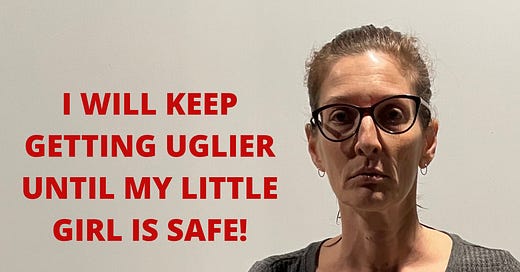There’s a certain kind of theft that never gets prosecuted.
It happens in broad daylight—on stages, in studios, on playing fields, in therapy rooms, even at the dinner table.
It’s called opportunity.
It’s called support.
It’s called being sponsored or “invested in.”
But what it really is… is possession.
Some children are born into families where their bodies, voices, and talents are immediately drafted into a role.
Not of child, but of provider. Of projection.
Of proof that the parent is doing something right.
This is the performance economy of childhood—where the child’s light is mined, monetized, or manipulated for emotional, social, or financial capital.
Where the applause isn’t just for their accomplishments—it’s for the parent. Especially, for the mother.
Because no one wants to talk about what happens when a mother sees her child not as someone to raise, but as someone to control or compete with. To extract from.
To punish for existing in a body that triggers her own buried shame.
This is where maternal narcissism thrives—when the mother’s unprocessed grief, trauma, unmet dreams, and deep internalized misogyny don’t get healed… they get passed down.
In smiles.
In sacrifices.
In subtle, weaponized acts of “love.”
And if you’ve lived it, you know: The jealousy doesn’t come with fists.
It comes with praise that feels wrong. With gifts that come with strings. With sabotage that looks like concern.
You start to learn: your shine is dangerous.
Your voice is negotiable.
Your success is only safe when it’s shared, filtered, controlled.
And when a father sees it, it’s already too late. He knows something is wrong. He sees what she’s doing.
But the world won’t believe him—she’s the mother. How could she ever see her child as competition?
She’s also the monster.
So he picks a vice. Or two.
Booze. Golf. Gambling. Porn. Work. Affairs.
Anything to numb the truth that he married the wrong woman.
That the vows he made before God bound him to someone capable of the unthinkable.
And now, his child has to pay for it.
This is the pain no one talks about—How a man lives with the weight of watching his children suffer at the hands of their mother.
The one he chose to procreate—to create future life—with.
The one he willingly gave himself to, for life.
And the silence that follows when there’s nowhere safe to say it out loud.
Especially with all the helpers she enlists, each with their own parts in her script.
The therapists.
The coaches.
The friends.
The colleagues.
The mentors.
The neighbors.
The “safe adults” who either turn away from her lies, or turn toward the child for their own purposes.
When a child has been trained to perform, they don’t always cry for help.
They present well. They charm. They read the room.
They shape-shift into what the adult needs from them at any given time—and disappear in the process.
So the grooming continues.
Wrapped in guidance.
Draped in credentials.
Sanctified by good intentions.
But the child always knows. Even when they don’t know what they know.
There’s a silence that forms in the body—a kind of internal curating, where you start editing yourself before words even form.
You learn what keeps the peace. What makes you tolerable. What holds the rage at bay.
You learn how to keep yourself safe. And that conditioning doesn’t dissolve on its own.
It follows you.
Into your relationships.
Into spiritual spaces.
Into your work.
Into therapy.
Into trauma recovery.
Even into your own parenting.
You don’t need to be on a stage to know this script.
You don’t need to be in show business to know what it’s like to be cast in a role you never auditioned for.
If this is waking something in you, it’s not by accident. And it’s not memory alone—it’s recognition.
Because sometimes the worst abuse wasn’t what was done to you.
It’s what they made you believe about yourself to justify it.



